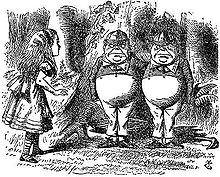This is rough. It is merely a cut-and-paste from some old sermon notes.
I'm posting this as a follow-up or further explanation of the
STTA for August 30, 2011.
As followers of Christ, our relationship with the world is complex. Perhaps these bones from a past sermon will be of help to you.
Christians in an Ungodly World.
#1 The "In"s and "Out"s of Christian Living in an Ungodly World, John 17
Read John 17.
Do a worldliness quiz:
How many of you use
car?
music?
wear neckties?
jewelry?
vote?
have ever held public office, school board, etc.?
are involved in public institutions, work for government, kids in public school, etc.?
watch movies?
read non-christian magazines?
swim or go to the beach where both sexes are present?
All of these are regarded as worldly activities by various groups.
Give a few examples.
While I reject the position that would characterize all or any of these activities as necessarily worldly I think that most of you would agree with me that each of them and a great many other things and activities can become negative in a person's life.
Consider another aspect of the problem:
Multitude of problems in the world:
How to solve?
Military?
Government agencies?
Is a particular view of politics "Christian"?
What should be the Christians involvement in these secular agencies?
As followers of Christ what should be our relationship to the world in which we find ourselves?
Explore this issue over the next several weeks. It will be an exploration together, because I am still very much a learner on these matters.
H. Richard Niebuhr, in his book Christ and Culture, summarizes 5 ways that Christians have typically responded to the culture around them, the world.
1) The first view is (move to one side of stage) is characterized by monks and present day Amish.
Our own heritage is a modification of this. There is nothing in common.
2) The second move to the other end. Is represented by classical liberals and many polyannaish type people that we meet everyday (move to other end of stage) We can work together totally, denial of any fundamental differences.
In between these Christ is creator of world, Christ is redeemer of church therefore there is some commonality.
3) These three positions that lie between the poles are a little tough to grasp. They may be artificial distictions, so let me simply summarize them this way.
there are those who recognixe the difference but see that the church and culture have similar goals. We can agree with the world and work together. We can fine tune and adjust the world so that it will work for us.
4) There are those who see the world here and the church here in constant tension. The relationship of the church to the world is confrontational.
5) Finally there are those who see the mission of the church as to recreate culture. I think that this is the reason for the fear expressed by many about the so called, "Christian Right." Rightly or wrongly they have seen this goal and they fear it.
OK, where should we be.
It is fairly easy to cut off the ends. I think our look at the words of the Lord this AM will do that.
Since the question is bound to come up. As I read Niebuhr's book I found myself saying yes and then later saying no to the three other positions. I find the most agreement with the position expressed by tension and confrontation.
My plan at this point is to center our thoughts around the prayer of the Lord Jesus Christ just bfore He went to the cross, John 17.
Our relationship to the world, expressed in the prepositions used by John.
"Out of" ek (6): Eph. 2:1-2
"in" en (11): Acts 1:8
(note, en, is used again in 17.)
"not of" ek (14,16): I John 2:15-17
"out of" ek (15): I Cor.5:10
Note the purposes for all of this in 1-5 & 19-26
That we might be His witnesses in the world and bring glory to God.


